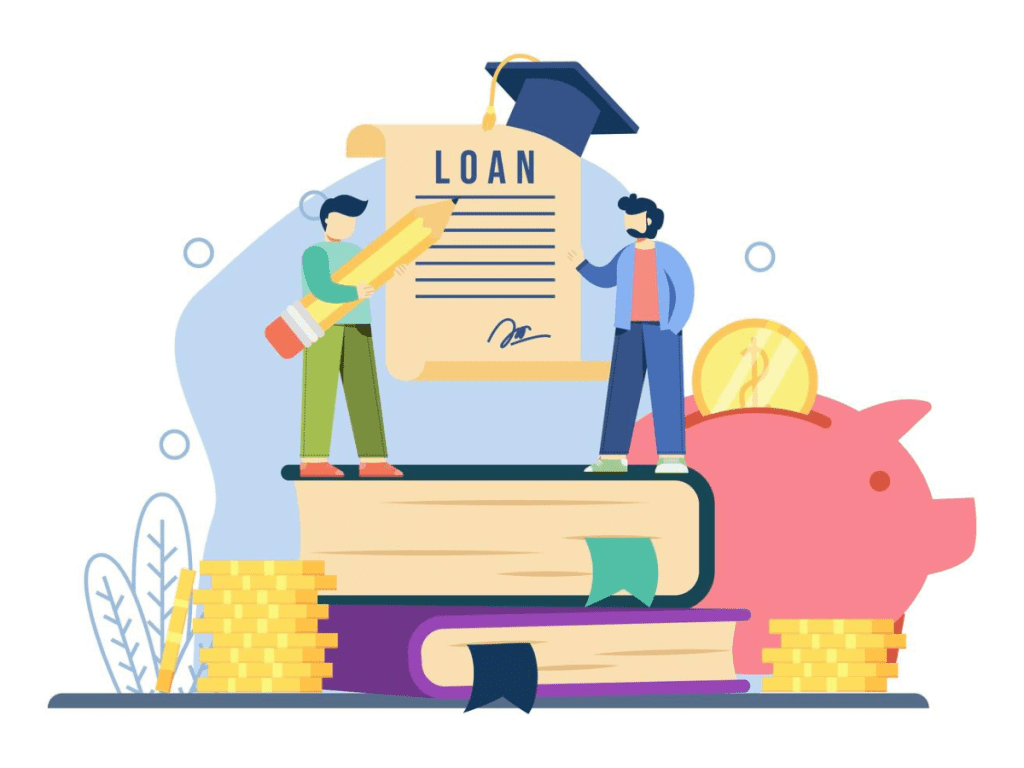introduction
Defaulting on a loan occurs when you fail to meet the terms of your loan agreement, typically by missing several payments. Loan default can have serious consequences, affecting your credit, financial future, and even your assets. Understanding what happens when you default on a loan can help you make informed decisions and avoid some of these repercussions.
What Is Loan Default?
Loan default is defined as the failure to repay a loan according to the terms outlined in the agreement. This can occur after missing a certain number of payments, which varies depending on the type of loan. For example:
- Credit Cards: A loan is generally considered in default after 180 days of missed payments.
- Personal Loans: Default typically occurs after several months of missed payments, but it can vary by lender.
- Student Loans: For federal student loans, default occurs after 270 days of non-payment.
- Mortgages: Default can happen if payments are missed for several months, often after 90 days of non-payment.
Default can also happen in cases where you fail to meet other terms of the loan, such as not maintaining adequate insurance or failing to adhere to other stipulations set by the lender.
Immediate Consequences of Defaulting on a Loan
1. Damaged Credit Score
One of the most immediate and lasting effects of defaulting on a loan is a significant drop in your credit score. Payment history accounts for a large portion of your credit score, and missed payments or defaults can lower your score by several points. A lower credit score can make it more difficult to qualify for new loans, obtain credit cards, or secure favorable interest rates in the future.
2. Increased Debt Due to Fees and Interest
When you default on a loan, the lender may add late fees, penalty charges, and higher interest rates to your balance. This can make the situation worse, as the total debt owed will continue to rise. With interest continuing to accrue, you’ll owe more than you originally borrowed.
3. Collection Efforts
Once you default, your lender may hand your loan over to a collections agency. Debt collectors will attempt to recover the money owed, often using aggressive tactics. Collection calls, letters, and even legal actions can occur. Having a collections account on your credit report can cause lasting damage to your credit score and complicate your financial situation further.
Long-Term Consequences of Defaulting on a Loan
1. Wage Garnishment
In some cases, particularly with federal loans (such as student loans) or court judgments, lenders may seek a court order to garnish your wages. This means a portion of your paycheck will be automatically deducted and sent directly to the lender until your debt is repaid. Wage garnishment can continue until the debt is paid in full, and the percentage of your wages taken can vary depending on the loan and the law.
2. Legal Action
If your lender is unable to recover the debt through collections or garnishment, they may take you to court. If the court rules in favor of the lender, you may be ordered to pay the debt in full, along with additional legal fees. Legal action can be expensive, stressful, and lead to further financial strain.
3. Seizure of Assets (Secured Loans)
If the loan is secured by collateral (e.g., a car loan or mortgage), the lender may repossess or foreclose on the property used as security. For mortgages, this could result in losing your home. Similarly, car loans could lead to the repossession of the vehicle. Losing an asset can leave you without the means to travel or live, creating further hardship.
4. Difficulty Securing Future Loans
Having a default on your credit report makes it harder to secure new loans in the future. If you do qualify for loans or credit, you will likely face much higher interest rates, as lenders view you as a higher risk. Additionally, your ability to rent apartments, get insurance, or even secure employment in some cases may be affected.
5. Tax Implications (For Certain Loans)
If your loan is forgiven after default, such as with certain federal student loan programs, the forgiven amount may be considered taxable income. This means that you could end up with a significant tax bill for the forgiven portion of your debt. In cases of mortgage foreclosures, the forgiven debt could also be subject to taxes, depending on the specific circumstances.
What to Do if You’re at Risk of Defaulting
1. Contact Your Lender
If you’re struggling to make your payments, the best course of action is to contact your lender. Many lenders are willing to work with borrowers to create alternative payment plans, deferments, or forbearance options. This can help you avoid default by giving you more time to make payments or reduce the monthly amount.
2. Explore Debt Consolidation or Refinancing
If you have multiple loans or credit card debt, consolidating or refinancing can simplify your payments and potentially lower your interest rates, making it easier to stay on top of your obligations. Debt consolidation combines multiple debts into one loan, while refinancing replaces a high-interest loan with one at a lower rate.
3. Look Into Income-Driven Repayment Plans (For Student Loans)
If you’re defaulting on federal student loans, consider enrolling in an income-driven repayment (IDR) plan. These plans base your monthly payments on your income and family size, which may make it easier to manage your payments. Additionally, income-driven plans may offer loan forgiveness after a set number of years.
4. Seek Credit Counseling
A credit counselor can help you create a debt management plan, which may include negotiating with creditors for lower interest rates or more favorable terms. Credit counseling agencies can provide free or low-cost services to help you regain control of your finances.
Can You Recover from Defaulting on a Loan?
Although the consequences of loan default are serious, recovery is possible. If you default on a loan:
- Pay Off the Loan: If you’re able to pay off your debt, the default will be marked as “paid” on your credit report. While it will still show up, future lenders will see that you’ve taken care of the issue.
- Negotiate a Settlement: In some cases, you may be able to settle the debt for less than what you owe. Settling will still have a negative impact on your credit but is less harmful than leaving the debt unresolved.
- Rebuild Your Credit: Once the default is resolved, work on rebuilding your credit. Paying all your bills on time, reducing outstanding balances, and using credit responsibly will gradually improve your score over time.
Conclusion
Defaulting on a loan can have significant and lasting consequences, including damage to your credit, legal actions, asset seizure, and more. However, if you’re struggling, there are steps you can take to avoid default, such as contacting your lender, exploring debt consolidation options, and seeking professional help. The key is to act early—before your payments become overdue—so you can protect your financial future and avoid the long-term repercussions of default.

